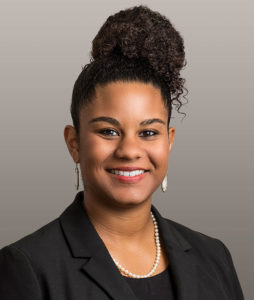• By Paige Duggins-Clay, J.D. • Knowledge is Power • May 20, 2022 •

U.S. House Hearing Examines Political Attacks on Free Speech and Classroom Censorship
Yesterday, the U.S. House Committee on Oversight and Reform’s subcommittee on Civil Rights and Civil Liberties held a hearing to examine political attacks on free speech and classroom censorship. The hearing built on the testimony and evidence submitted earlier this year on book bans and academic censorship, shining a light on the negative impact of these harmful policies on our youth.
As Chairman Jamie Raskin observed, the recent political efforts to censor expression in schools serve as a “nationwide assault on the rights of teachers and students to engage in free speech and historical accuracy.” Critically, Raskin demonstrated that censorship policies promote “sinister distrust” in public education and are part of the broader strategy to dismantle public education and push privatization policies.
The hearing further underscored the danger of limiting students’ and educators’ ability to engage freely in learning and dialogue about history and current events. “No student or educator should feel targeted because of any aspect of their identity, including their race, ethnicity, gender, religion, or gender identity,” said IDRA President and CEO Celina Moreno, J.D. “Federal and state actors and schools must protect students, not create or implement policies that compromise their safety, attempt to erase or censor their experiences and perspectives, or make it difficult for them to learn and succeed in the classroom.”
A panel of three high school students shared firsthand how the political attacks on students, educators and public schools detract from healthy school environments. “Education matters more than politics,” said Elle Caldon, a Texas high school student, who expressed concern that some state and school leaders were focusing on politicizing identities and backgrounds instead of working on critical issues such as widespread teacher shortages, addressing learning loss due to the pandemic, and the youth mental health crisis.
Other panelists spoke about the harmful impacts of censorship policies on their own students and children. “Safe public schools are a national security and moral necessity,” Kentucky teacher of the year William Carver said, urging educators, parents and policymakers to continue fighting for “kids to feel human, feel safe, feel hope.”
Historian Timothy Snyder warned that authoritarian efforts to limit free speech and demonize systemically-marginalized children and communities threaten our democracy. “Authoritarians know that to master the present and the future, they first have to master the past,” Snyder said. “When we shrink the past with censorship, fear and intimidation, we also shrink the possibilities for discussions in the present… It’s discussions about the past that let us understand and self-correct our mistakes. That’s what democracy is all about.”
Frequently and misleadingly referred to as “parental rights” laws, censorship policies such as book bans and prohibitions on discussing or teaching so-called “divisive” concepts have no legitimate pedagogical objective and instead undermine effective inclusive instruction. Although the voices pushing these harmful policies and narratives do not represent the views of the vast majority of parents, anti-public education politicians are attempting to use parents and children as political pawns to stoke fear and resentment to support anti-equity policies such as education savings accounts and vouchers. As censorship laws continue to be adopted and implemented across the nation (and particularly across the South), advocates, educators and community members must continue to speak out against their harmful and discriminatory impacts.
To learn more about IDRA’s policy, advocacy, and community engagement work combatting censorship efforts, watch for upcoming issues of Knowledge is Power. And encourage your friends to sign up for our national resource for educators and advocates working to promote equity and excellence in education.
[©2022, IDRA. This article originally appeared in the May 20, 2022, edition of Knowledge is Power by the Intercultural Development Research Association. Permission to reproduce this article is granted provided the article is reprinted in its entirety and proper credit is given to IDRA and the author.]


